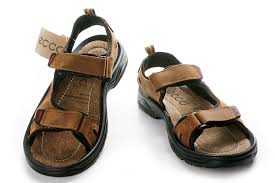by Ken Burnett
This story sets out to answer every potential donor’s question about whether charities are really doing any good. I’ve included it because it shows even my broken shoes have a story to tell.
I took my broken sandals to the shoe-mender across the road from my London flat. ‘These are unusual,’ he observed as I handed them over. ‘They’re from Ghana’, I told him. ‘ I bought them from a street vendor in Accra for less than two pounds but they are the most comfortable shoes ever, leather throughout. Though, not stitched or glued very strongly.’ I saw that he’d noticed their earlier mends. ‘Yes, I responded to his query, one repair was done in Bangalore, India, the other in Kathmandu, Nepal.’
‘They’re expertly done’, he said with respect. ‘How do you get to travel to such a lot of exotic places?’ I explained that, at the time, I was a member of the international board of trustees of ActionAid, the poverty fighting development charity. Each year at least two of our board meetings were hosted in different programme countries, so I got the chance to go somewhere far-flung and interesting. He looked at me incredulously, then a bit askance.
‘That sounds like quite a game’, he said. ‘These charities seem to have no end of fun spending their donors’ money organising meetings all over the place.’
It’s a natural criticism, not an unreasonable observation. Sometimes, it’s best to leave people with their preconceptions. But I know this guy, so I was happy to enlighten him.
‘You know,’ I said, ‘one of the biggest problems to overcome when fighting poverty is the often low standards of leadership and governance in developing countries. It’s a major cause of grief in many developed economies too, as we’ve all seen recently. But many poor countries lack the culture, capacity and traditions of good self-management. These are particularly essential characteristics in non-government organisations that are campaigning for human rights and lasting social change. So in ActionAid we’re investing in building governance capacity in all our countries worldwide.’
‘It’s a huge task,’ I continued, ‘one that can’t be done on the cheap. Relative to other perhaps more tangible investments, such as delivering food aid, building schools, digging wells and such like, the outlay is small. But the effects are likely to be much deeper and longer lasting. Our aim is to create strong, competent, well-run, self-sustaining, independent national boards that are capable of determining their own local and national priorities within ActionAid’s broad strategy, Rights to end poverty. ’
ActionAid works in getting on for 50 countries around the world, from Afghanistan and Brazil to Zambia and Zimbabwe. In 2003 it was the first major international charity to shift its international headquarters from a base in the affluent North – London, to a capital in the global South – Johannesburg. Its chair of trustees when I was on the board was a Ugandan woman; its chief executive was an agriculturalist from Nepal. Seated around its top governance table you’d find representatives from national boards that ActionAid has created and is supporting in Malawi, Guatemala, India, Sierra Leone, Greece, Ghana, Denmark, USA, Australia, Uganda, Kenya, the UK and others. ActionAid’s international governance system enjoys all the colours of the rainbow and all the flavours of a Nepalese street market. Though it started in the UK, British trustees are determinedly and deliberately thin on the ground. At our most recent meeting there were more Indians and Brazilians than Brits.
Experience to date seems to indicate that ActionAid’s board does its job rather better now too. In many countries the new ActionAid boards have been able to secure top brains and experienced campaigners for change of a quality that would have been hard to find and attract if we’d only been fishing in British local waters. These new, developing trustees include many academics, politicians, business leaders, legal specialists and opinion formers.
But diversity brings better decisions by definition. In each country ActionAid’s new leaders know where the poverty is and what’s causing it, because they come from it and see it in their daily lives. It also brings credibility and acceptance too, as individual national ActionAids around the world are increasingly seen wherever they work as self-regulating independent members of a southern-led international family, not as agents of British or American influence. In today’s volatile international environment, this makes a huge difference.
But will this move increase the impact that ActionAid’s donors will have on reducing poverty? Without doubt, it will. ActionAid’s response to poverty includes not just the traditional pillars of rights to education, health, land, food, water, livelihood, reproductive and women’s rights but also the right to sound democratic governance at all levels. By building exemplary boards at the country level ActionAid is sending a strong, consistent message to the people and political leaders of each country where it works – a message that proclaims the importance of sound, just and equitable governance. And will train new generations to recognise what good governance is, and does.
Will this really help make poverty history? Not immediately, perhaps. Rather, as I endeavoured to explain to my friend the cobbler, it requires persistence and substantial investment, starting now. But as my shoe purchase and their repairs showed, value for money in these countries is often of a different order of magnitude than we’d find closer to home. Building better governance is a large and important step on the right path. And the evidence already shows it is working.
This article first appeared in 2008 when Ken was a member of the international board of the charity ActionAid, a role he relished for 13 years.
